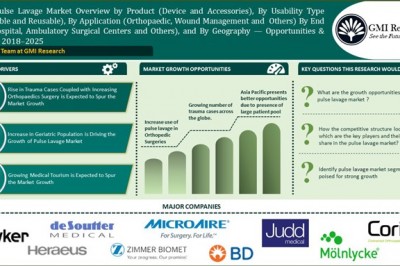Financial Strategy and Planning: A CFO brings expertise in financial strategy and planning, helping to shape the long-term vision and goals of the company. They can provide insights on revenue models, pricing strategies, and financial projections, ensuring the company's financial strategy aligns with its business objectives
Financial Management and Control: A CFO plays a vital role in managing and controlling the company's financial operations. They oversee budgeting, cash flow management, financial reporting, and internal controls, ensuring compliance with regulatory requirements and best practices. The CFO helps establish financial policies and procedures to safeguard assets and mitigate financial risks.
Investor Relations and Fundraising: Fintech companies often require external funding to fuel their growth and innovation. A CFO plays a critical role in managing investor relations, engaging with potential investors, and presenting financial information to stakeholders. They can help create compelling investment propositions and ensure accurate and transparent financial reporting to build trust and confidence among investors.
Financial Analysis and Decision-Making: CFOs provide financial analysis and insights to support informed decision-making. They evaluate the financial viability of new projects, conduct cost-benefit analyses, and assess the potential risks and rewards of strategic initiatives. By providing financial data and analysis, the CFO enables the management team to make sound decisions that align with the company's financial objectives.
Regulatory Compliance and Risk Management: Fintech companies operate in a highly regulated environment. A CFO with knowledge of financial regulations and compliance requirements ensures the company adheres to relevant laws, regulations, and reporting standards. They also assess and manage financial risks, including cybersecurity risks, operational risks, and regulatory compliance risks.
Strategic Partnerships and M&A: As fintech companies grow, they may seek strategic partnerships or consider mergers and acquisitions to expand their offerings or enter new markets. CFOs are instrumental in evaluating potential partnerships or acquisition targets, conducting financial due diligence, and assessing the financial implications of such transactions. They help negotiate deals, structure financing arrangements, and ensure that financial considerations align with the company's strategic goals.
Financial Governance and Board Reporting: A CFO supports the board of directors by providing financial governance and reporting. They prepare financial reports, present financial performance to the board, and ensure transparency and accuracy in financial disclosures. The CFO also assists in financial planning and strategy discussions, providing valuable financial insights to guide board-level decision-making.
Scalability and Growth Management: As a fintech company scales and grows, its financial management becomes more complex. A CFO helps navigate this growth by implementing scalable financial systems, processes, and controls. They provide financial guidance on scaling operations, managing working capital, and optimizing financial resources to support the company's growth trajectory.
A Chief Financial Officer (CFO) can play a crucial role in helping your business scale by providing financial leadership, strategic insights, and operational expertise. Here are some ways a CFO can assist in scaling your business:
Financial Planning and Forecasting: A CFO can develop comprehensive financial plans and forecasts that align with your growth objectives. They analyze historical data, market trends, and business projections to create realistic financial targets. By establishing financial goals and monitoring progress, the CFO ensures that financial resources are allocated effectively to support scaling initiatives
Fundraising and Capital Management: As your business scales, you may need to secure additional funding to fuel growth. A CFO can help identify funding sources, develop investment proposals, and engage with investors or lenders. They have the expertise to structure financing arrangements, negotiate favorable terms, and optimize capital utilization. The CFO ensures that the company has the necessary financial resources to support expansion plans.
Financial Process Optimization: Scaling a business often requires streamlining financial processes and implementing scalable systems. A CFO can assess and optimize financial processes such as budgeting, cash flow management, financial reporting, and internal controls. By improving operational efficiency, implementing automation, and standardizing financial procedures, the CFO enables the business to scale smoothly and efficiently.
Strategic Decision-Making: CFOs provide financial insights and analysis to support strategic decision-making during the scaling process. They evaluate potential growth opportunities, conduct financial due diligence on partnerships or acquisitions, and assess the financial impact of strategic initiatives. By providing financial models, risk assessments, and scenario analyses, the CFO helps the leadership team make informed decisions that drive sustainable growth.
Performance Measurement and Key Metrics: To effectively scale, you need to measure and monitor key performance indicators (KPIs) that align with your growth objectives. A CFO can identify and track relevant financial and non-financial metrics that gauge the success of scaling initiatives. They provide regular reports and analysis, enabling management to make data-driven decisions and take corrective actions if necessary.
Risk Management and Compliance: As your business grows, managing risks becomes increasingly important. A CFO can identify and assess financial risks associated with scaling, such as cash flow constraints, operational inefficiencies, regulatory compliance, and market volatility. They develop risk mitigation strategies, establish internal controls, and ensure compliance with financial regulations. The CFO helps protect the business's financial health while pursuing growth opportunities.
Strategic Partnerships and M&A: Scaling often involves exploring strategic partnerships, collaborations, or potential mergers and acquisitions (M&A). CFOs can play a pivotal role in evaluating partnership opportunities, conducting financial due diligence, and assessing the financial impact of M&A transactions. They provide financial analysis, assist in negotiations, and ensure that financial considerations align with your scaling objectives.
Investor Relations and Stakeholder Management: Scaling a business may require engaging with investors, shareholders, and other stakeholders. A CFO can manage investor relations, communicate financial performance and growth plans, and address investor concerns. They play a critical role in building trust and maintaining relationships with key stakeholders, ensuring continued support during the scaling process.
A CFO's financial expertise, strategic insights, and operational guidance are invaluable for scaling your business. They help optimize financial planning, secure funding, improve financial processes, facilitate strategic decision-making, manage risks, and maintain stakeholder relationships. By working closely with the leadership team, the CFO enables your business to scale effectively, manage financial resources efficiently, and achieve sustainable growth.
In summary, a CFO is indispensable for a fintech company due to their expertise in financial strategy, financial management, regulatory compliance, risk management, investor relations, and decision-making support. Hiring a CFO ensures that your fintech company has a strong financial foundation, enabling sustainable growth, effective financial management, and regulatory compliance in an increasingly dynamic and competitive industry. FD Capital are a leading London based recruiter of CFOs and FDs.




































